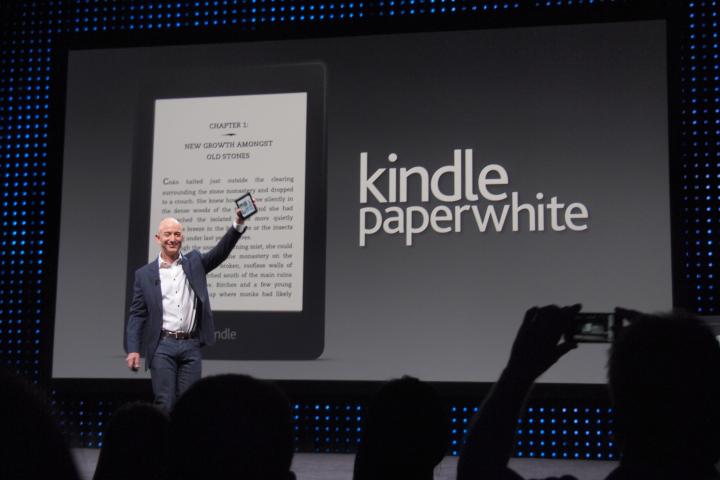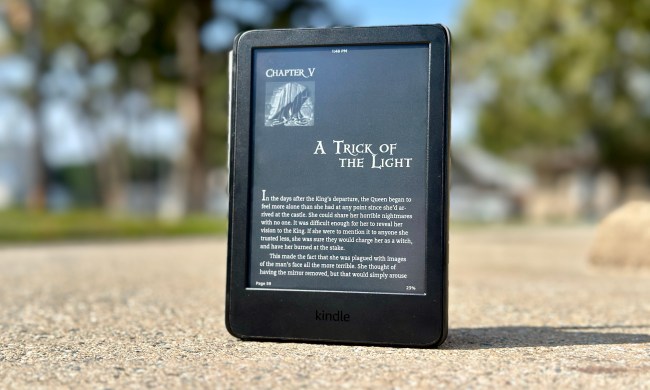
This week Amazon announced an initiative that was probably designed to look like an olive branch to independent brick and mortar booksellers but instead came across as yet another way for the online giant to steal customers from them. The Amazon Source program gives indie bookstores the opportunity to sell Kindles in store and get a percentage of sales generated by that store’s customers. Sounds like an okay deal, right? Booksellers don’t think so.
Melville House, an independent publisher, posted a host of responses to Amazon Source from bookstore owners and workers on their blog. No big surprise, none of them think this program is a good deal for indies. Some describe Amazon as “disingenuous” and “obviously a Trojan Horse style attempt to gain access to our customers.” Others used harsher language, comparing Amazon to a schoolyard bully or calling its business practices a “multi-national ponzi scheme.”
New York City’s own McNally Jackson Books posted this GIF in response:

Think that’s harsh? Owner Sarah McNally followed it up by saying Amazon “can go f–k themselves.” Ouch.
Lest you think all these booksellers are just stuffy ebook haters with a chip on their shoulders about Amazon, it’s important to note that several of them already sell ebooks and sometimes ebook readers through Kobo. One year ago Kobo signed a deal with the American Booksellers Association that gives indie booksellers a chance to make money off of ebook sales on the Kobo platform. In broadstrokes, it’s similar to the deal Amazon is offering, though the money details differ. Bookstores that decide to sell Kindles will only get a 6 percent discount when buying them for resale. A source also stipulates that an indie store will get 10 percent of every book bought by a customer who buys a Kindle from them, but only for two years. Another major contributing factor: booksellers don’t think that Kobo is the devil.
This latest scuffle is just part of the larger war between Amazon and brick and mortar stores. Retailers have been railing against the company’s Price Check app for a couple of years now, charging that it encourages consumers to use physical locations as showrooms and then buy online. Local businesses have also been lobbying state governments to make Amazon collect sales tax in order to remove what has been called an unfair advantage in pricing. It’s not universal yet, but now more than half of Americans do have to pay local taxes when buying online.
With the loss of the tax-free discount in more and more states, Amazon Source may be a bid to make up some of that revenue by squeezing the last bit of change from the company’s oldest nemesis: physical bookstores. It could be said that Amazon needs indie bookstores to join the Source program more than bookstores need the money it might bring in. As Stefan Moorehead of the Unabridged Bookstore in Illinois points out, “our month over month sales have risen since Borders shut down in 2011.”
Given the vehement reaction, you probably won’t see Kindles being sold in your local bookstore in the near future. Book lovers, is that a good or a bad thing? Do you wish you could support the indie store you love with ebook purchases but can’t bring yourself to buy through Kobo? Would you be more willing if you could do it through Kindle?


